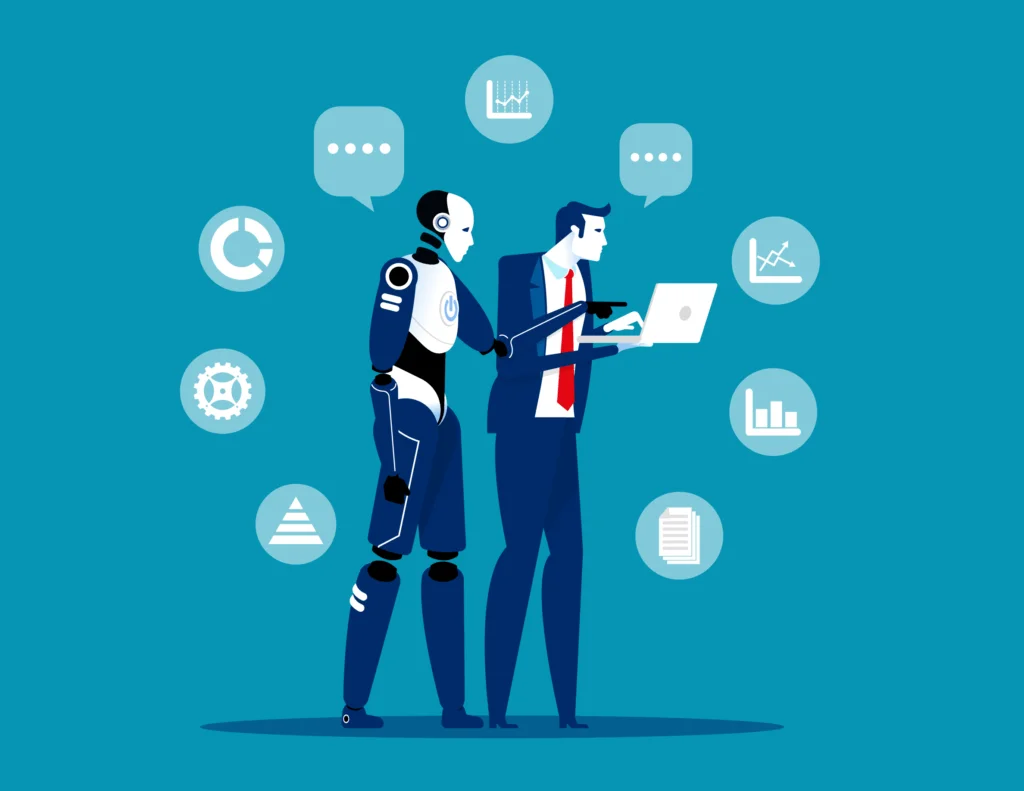In recent years, the realm of accounting has undergone a remarkable transformation, thanks to the integration of Artificial Intelligence (AI) into traditional financial practices. This dynamic merger of cutting-edge technology and established methodologies has not only streamlined processes but has also brought about a profound shift in the way accounting professionals operate.
A Game Changer
Artificial Intelligence has emerged as a game changer in the accounting landscape. It offers the ability to process vast amounts of data with unparalleled speed and accuracy. Mundane tasks such as data entry, reconciliation, and basic bookkeeping can now be automated, liberating accountants from time-consuming activities and allowing them to focus on higher-value tasks.
Enhanced Accuracy and Reduced Errors
One of the most significant advantages of integrating AI into accounting is the enhanced accuracy it brings. AI-driven algorithms are designed to minimize errors by identifying anomalies and inconsistencies in financial data. This not only ensures that financial statements are error-free but also boosts the credibility of the information presented.
Advanced Data Analysis
AI-equipped accounting systems have the capability to analyze complex financial data at an unprecedented level. These systems can identify trends, patterns, and insights that might go unnoticed through manual analysis. This assists businesses in making informed decisions and developing proactive strategies based on real-time insights.
Strategic Financial Planning
AI empowers accountants to become strategic advisors. By leveraging predictive analytics, AI can forecast financial trends and help businesses plan for the future. This transformation from reactive to proactive financial management is reshaping the role of accountants as they contribute more directly to their clients’ growth and stability.
Enhancing Compliance
The integration of AI in accounting also has profound implications for regulatory compliance. These systems are programmed to stay updated with the latest tax laws and regulations, reducing the risk of non-compliance. This is particularly critical in an era when regulatory landscapes are rapidly evolving.
Challenges and Considerations
While the merger of AI and accounting brings remarkable benefits, there are certain challenges to consider. Data security and privacy are paramount concerns, as AI systems require access to sensitive financial information. Implementing robust security measures is essential to safeguard against potential breaches.
The Human Touch
Despite the rise of AI, the importance of the human touch remains irreplaceable in accounting. Building client relationships, understanding individual business needs, and offering tailored advice are areas where human accountants excel. AI serves as a tool to enhance their capabilities rather than replace them.
Conclusion
The fusion of AI and traditional accounting practices represents a significant turning point in the industry. By automating routine tasks, providing accurate insights, and enhancing strategic planning, AI empowers accountants to become more than number crunchers. This transformation not only elevates the accounting profession but also contributes to the success and growth of businesses in an increasingly digital world. As this collaboration continues to evolve, the synergy of AI and accounting promises an exciting future for both professionals and businesses alike.


